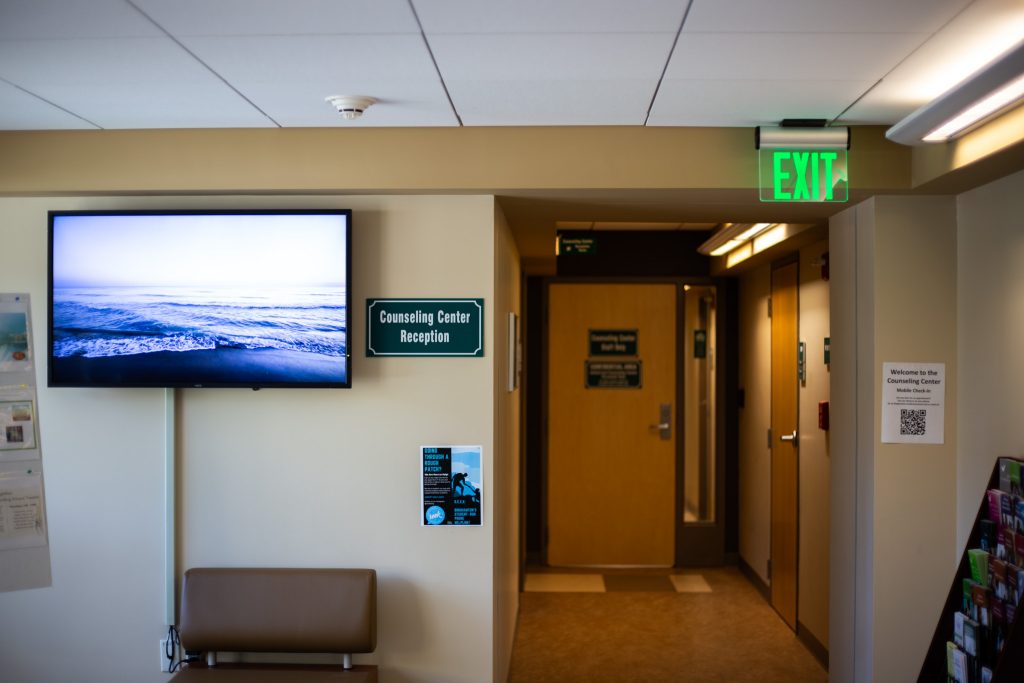This year, Binghamton University will use new state funding to expand student life and success offices.
In a recent BU Council meeting, Brian Rose, the vice president for student affairs, announced a plan for investments in student life. The initiative, to be implemented in the 2023-24 academic year, includes more staffing in student-oriented services, like the University Counseling Center (UCC), the Fleishman Career Center and Services for Students with Disabilities (SSD). Other resources for student success will be expanded, including a new opportunity program for low-income students and a career skills lab.
“We wanted to invest in ways to provide students with opportunities to get engaged, to help students eliminate barriers to being engaged and being successful on campus and to pay attention to their overall well-being,” Rose said.
The funding for the investments came from provisions in New York state’s 2024 budget dedicated to supporting SUNY campuses. This year, the state allocated an additional $15.6 million to BU on top of the $45 million in funding the University receives annually. Some funds are earmarked toward certain issues, like mental health and disabilities, while additional funding is set aside for each campus’s discretion.
To address students’ mental health, the UCC will add seven new positions, including two additional counselors. The UCC plans to search for specialists, particularly ones with areas of expertise that meet the current needs of students, like neurodiversity, eating disorders and psychosis. Three case manager positions will be created, one to be shared by the UCC and Decker Student Health Services Center Psychiatric Services, and two working with Residential Life and the Consultation, Advocacy, Referral and Education (CARE) team. The UCC will also continue to expand its partnership with BetterMynd, a tele-therapy company that gives students the ability to meet with a network of mental health counselors of varying specialties.
Resources will also be used to grow the Healthy Campus Initiative, which focuses on bettering the physical and psychological health of students. Two new UCC staff positions will be dedicated to promoting awareness of programs, services and prevention strategies.
The Fleishman Career Center will receive five new positions — four industry specialists dedicated to developing employer relations and creating skill-building programs and one position focusing on high-impact practices, particularly internships. Further funding will go toward developing a skills lab, which will use connections with employees and alumni to teach skills outside of a typical classroom setting, according to Kelli Smith, the assistant vice president for student success.
“The world of work is changing rapidly,” Smith said. “We know this from [COVID-19]. We know [this] from the advent of [artificial intelligence]. We need to make sure we’re up to date on all of these changes so that we’re preparing our students. We need to make sure we’re supporting the University’s workforce development initiatives.”
SSD will hire five new advisors to support students with disabilities — who make up over 10 percent of the student body. SSD will also develop assistive, adaptive technology to reduce classroom barriers, including collaborations with different campus offices, like Information Technology Services and Facilities Management.
Another program will expand TRIO, an opportunity program that currently supports 550 to 600 low-income and first-generation students annually, providing an additional 150 to 200 students with academic advising, tutoring and leadership opportunities and development. Other programs, like the Civil Dialogue Project — an initiative created by Trevor Fornara ‘23 and Bill Groner ‘77 to improve student communications and combat political polarization — are also in development.
Rose also announced tentative plans to invest and add positions in other offices, including incoming student programs like Orientation and various departments focused on student life, such as Residential Life, Campus Recreation, Campus Activities and Auxiliary Services.
Chloe Fuller, a sophomore majoring in psychology, expressed doubt that the added positions would benefit the UCC in particular.
“I don’t think that hiring more therapists to work at [BU] would change the situation because they’re getting the same training as [other therapists],” Fuller said. “The issue isn’t hiring more people, it’s how the people do the job.”
Villaire Jackson, a sophomore majoring in mathematical sciences, said she believed the additional Fleishman Center funding will benefit students.
“I think the investments are good,” Jackson said. “However, I think they should pick and choose what resources get investments. I believe the Fleishman Center should continue to get more investments and promotions. They are a great resource that gives so many students opportunities to better their future careers.”



